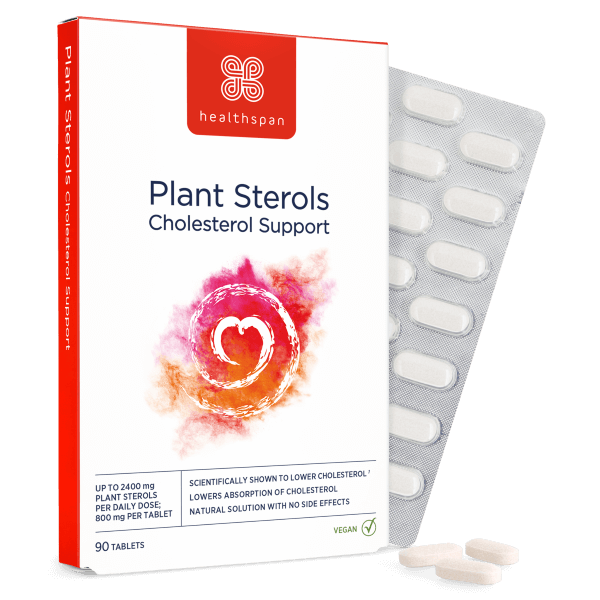From diet to lifestyle, look after your heart and it will look after you. Jane Collins shows you how to give yours some extra TLC.
Few of us actively think about how healthy our hearts are; not least because we can't see them, so assume they are ticking along nicely. And yet – according to the HSE, cardiovascular disease (CVD), of which coronary heart disease (CHD) is a part, is the most common cause of death in Ireland.
The good news is that simple lifestyle tweaks are all it takes to keep heart disease at bay. Here's how to take the first steps to a healthy heart.
Watch your weight
Being overweight increases your risk of high blood pressure, high cholesterol and type 2 diabetes (all markers for potential heart disease). And the more extra cladding you are carrying around your belly, the bigger your risk (the danger zone for a woman is a waist measuring 32in or over and for a man 37in or more).
If you can shave just two inches off your waist through diet and exercise, you reduce your risk of CHD by around 10-15 per cent.
Get some exercise
Becoming more active will not only help to burn off calories, but will also help balance blood glucose, lower high blood pressure and lower LDL 'bad' cholesterol, while boosting levels of HDL: the 'good' variety.
The good news is that even moderate exercise, such as half an hour's worth of gardening or walking a day, something easily manageable, has been linked to a lower risk of heart attack and stroke.
If you don't currently do any regular exercise, brisk walking is one of the easiest ways to work it into your life – walk to the shops or to work, or join a walking group. The Department of Health recommends 2.5 to 5 hours of moderate activity, or 1.25 to 2.5 hours of vigorous activity per week.
OMEGA 3 These heart-healthy fats contribute to normal cholesterol levels and heart function.
VITAMIN K2 Contributes to normal blood clotting.
PLANT STEROLS Help to lower cholesterol levels.
Try a heart-healthy diet
Mediterranean diet
The Mediterranean diet trumps every single diet in the heart-healthy stakes. A study presented at 2017's European Society of Cardiology conference revealed that those with a history of heart disease who ate the Med way – plenty of fruit and veg, wholegrains, pulses, nuts, seeds, fish, olive oil, garlic and herbs plus moderate amounts of poultry, red meat and alcohol – had a 37 per cent lower risk of dying than those who did not.
DASH diet
The DASH (Dietary Approaches to Stop Hypertension) diet, which is low in saturated fat and sugar and salt, but high in vegetables, fruits, wholegrains, low-fat dairy, fish, poultry, nuts and vegetable oil, has been shown to lower not only blood pressure but also LDL cholesterol – the 'bad' type – in a matter of weeks.
Keto diet
The ketogenic (keto) diet is very low in carbs such as pasta, with moderate protein and high fat. It has been shown to help reduce some risk factors such as obesity, but its long-term effects are as yet unknown.
Small lifestyle changes, big gains
You don't have to suddenly live off spiralised lettuce or run marathons to improve this life-sustaining organ. Small changes can be gradually incorporated into your daily life, and have a big payoff.
Try a plant-based diet
Substitute one red meat-based meal a week for a plant-based one or one containing oily fish.
Fill up on low-calorie, high-fibre fruit and vegetables; include at least one extra portion of fruit or veg daily; cook with unsaturated fats like olive, sunflower or rapeseed; snack on fruit or heart-healthy nuts and seeds; use herbs and spices in place of salt.
Moderate the alcohol
A large 2017 study found moderate drinkers (classed as one or two drinks a day) were less likely to die from heart disease than those who didn't touch a drop. It is regularly drinking to excess that poses a problem.
Stop smoking
The sooner the better. Smoking doubles your risk of having a heart attack.

Plant Sterols 800mg
Proven to maintain or lower cholesterol
- Blocks the absorption of dietary cholesterol
- One tablet a day maintains normal cholesterol levels
- Three tablets a day (2.4g) lowers cholesterol levels






